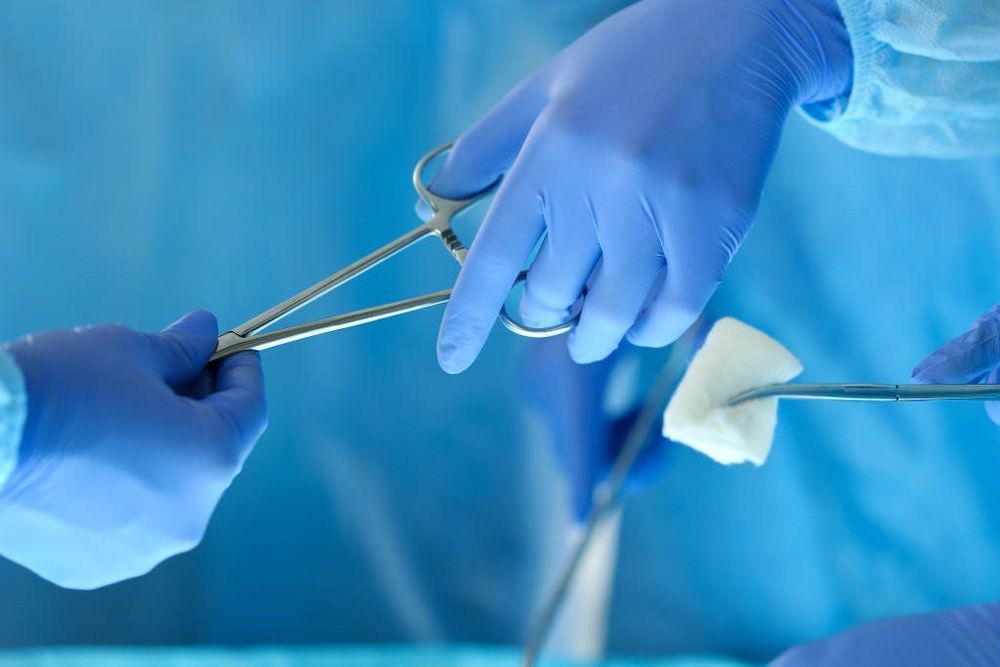This is an automatically translated article.
The article was professionally consulted by Specialist Doctor I Dong Xuan Ha - Digestive Endoscopy - Department of Medical Examination and Internal Medicine - Vinmec Ha Long International HospitalTreatment of ischemic colitis needs to be carried out quickly to minimize the serious complications that the disease can cause. Treatment of ischemic colitis is selected based on the severity and general health of each specific patient.
1. Overview of ischemic colitis
Ischemic colitis is an inflammatory disease of the large intestine caused by insufficient blood supply, causing tissue hypoxia. The disease usually occurs in the acute setting, progresses rapidly, accounting for over 80% of all cases, possibly due to blood clots from other places in the body following the blood to obstruct the branches of blood vessels. colonic segments or local atherosclerosis causing a sudden decrease in blood flow. When there is not enough blood supply, tissue oxygen demand is not guaranteed, many serious complications can occur, the most dangerous is colon necrosis requiring resection. In rare cases, patients may be symptom-free after a few days and recover gradually in about 2 weeks. Ischemic colitis is a dangerous disease, so if the patient has risk factors that increase the likelihood of the disease or clinical signs that suggest it, it is necessary to seek medical attention as soon as possible. .
2. Causes of ischemic colitis
The causes of ischemic colitis are quite diverse, but they all have a common consequence, which is to reduce the amount of blood to nourish the tissues and not to ensure enough oxygen supply to the tissues. Some of the common causes can be listed below:Arterial branches that nourish the colon have atherosclerotic lesions, the plaque grows larger causing narrowing of the lumen and reduced blood flow. to the large intestine. Thrombosis formed from other sites in the body due to mitral stenosis , atrial fibrillation , endocarditis , pericarditis , venous thrombosis , ... follows the body's circulatory system to obstruct Branches of arteries are responsible for the nutrition of the large intestine. A number of systemic diseases can cause small vessel occlusion, including rheumatoid arthritis, scleroderma, hypercoagulopathy, vasculitis... Decreased blood flow in the body in various contexts such as septic shock, severe bleeding, anaphylaxis, severe heart failure. At that time, the body will concentrate blood to nourish essential organs such as the brain, heart, kidneys and at the same time constrict peripheral vessels as well as other locations in the body. The blood vessels feeding the colon are compressed by intraluminal tumors, volvulus, intestinal obstruction due to fecal masses or strangulated inguinal hernias can also be the cause of ischemic colitis. Abuse of drugs: Some groups of drugs have been shown to have an effect on reducing the blood flow to nourish, causing ischemic colitis if used inappropriately for a long time, such as: antibiotics, group of diuretics, etc. diuretics, non-steroidal anti-inflammatory drugs, sedatives. Using stimulants such as heroin, alcohol, tobacco.

3. Signs of ischemic colitis
Ischemic colitis usually has an acute course with characteristic pain. Pain appears suddenly, intermittently and tends to get worse if not treated promptly. Clinically, patients may experience many different symptoms depending on the severity of the disease, such as: frequent bowel movements with liquid, bright red or red-brown blood; persistent nausea, vomiting; Abdominal spasticity if complicated by peritonitis with or without bowel perforation.4. Diagnostic methods for ischemic colitis
To diagnose ischemic colitis, doctors need to coordinate between clinical examination and appropriate paraclinical means. Tests commonly ordered to diagnose disease and disease severity include:Peripheral blood count, noting an elevated white blood cell count suggesting localized inflammation or progression to peritonitis desert. Fresh stool test detects pathogenic bacteria, can see red blood cells in stool, useful for treatment Colonoscopy helps to detect lesion sites with high accuracy Angiography or CT Angioplasty scan helps to detect morphological abnormalities as well as sites of vascular occlusion. This is both a diagnostic tool and a means to help support vascular intervention, remove blood clots or embolize bleeding blood vessels.
5. Treatment of ischemic colitis

Ischemic colitis is treated with different methods depending on the severity of the disease and patient-related characteristics such as age, gender, etiology and general health status. shouted. Treatment methods for ischemic colitis are divided into two large groups as follows:
Internal medicine: mainly use pain relievers, anti-inflammatory drugs and antibiotics. Medical methods are indicated for mild cases, which respond well to treatment. Anti-inflammatory pain relievers help treat pain symptoms. Antibiotics are effective in preventing inflammation and infection. In addition, some other groups of drugs used to treat the cause are also used for patients such as drugs to dissolve blood clots, increase vascular strength, ... People with ischemic colitis are consulted. Treatment with only medical methods usually has a good prognosis, symptoms may be relieved after a few days. Surgery: ischemic colitis will be consulted for surgery in severe cases. The purpose of surgery is to remove the necrotic tissues, anastomosis if there is a complication of colon perforation, resection of the necrotic bowel and anastomosis of the bowel or a temporary colostomy. These cases often have a more severe prognosis, patients need to be hospitalized for monitoring and treatment for a longer period of time. Medical and surgical treatment are often combined in clinical practice. After finishing treatment, patients should have regular check-ups, change their diet and reasonable lifestyle, don't smoke, exercise regularly to speed up the recovery process as well as prevent them. The disease can come back at any time.
Please dial HOTLINE for more information or register for an appointment HERE. Download MyVinmec app to make appointments faster and to manage your bookings easily.














